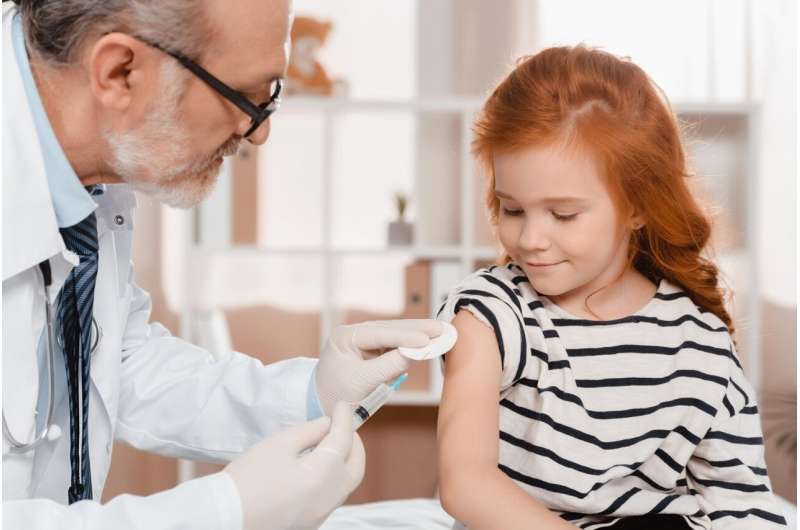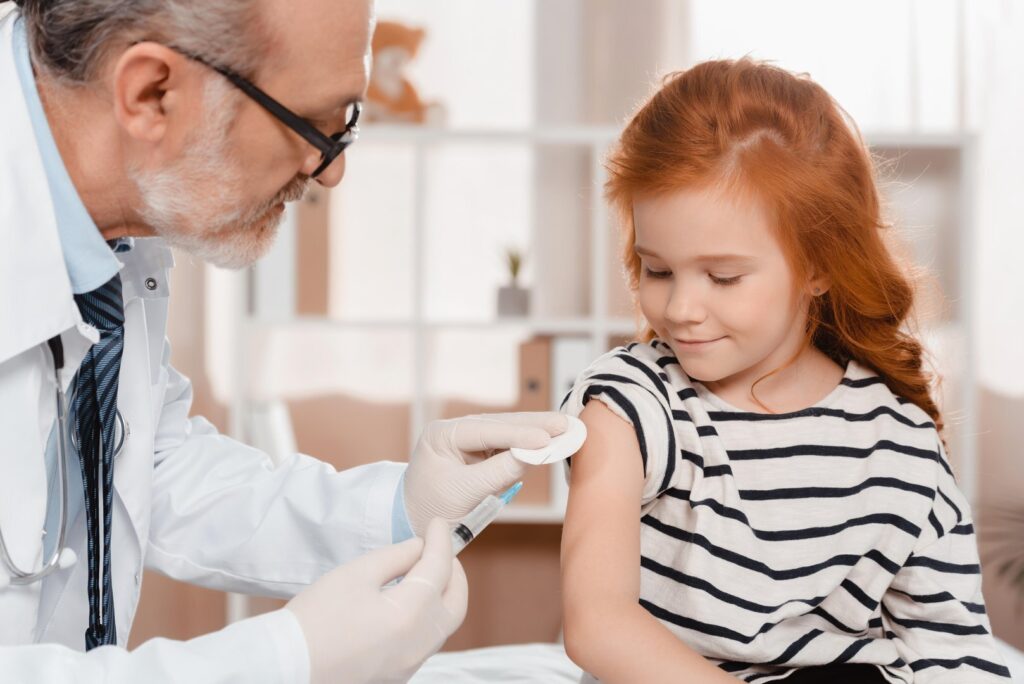
Whether you're exploring Europe, going on a safari in Africa, or traveling to the tropics, vaccinations are often required for travel, even more so for children.
Pediatrician Dr. Lauren Nguyen says it's important to find out what vaccines your family needs and be fully prepared before you set off.
“We tell families it's best to come about six weeks before traveling internationally,” says Nguyen, who is based in Torrance, California, and part of the Children's Hospital Los Angeles Care Network.
Meet with your child's pediatrician to review your travel plans, find out what vaccinations are required or recommended depending on where you're going, and make arrangements for any necessary shots. This consultation is probably best done in person rather than over the phone, Nguyen noted.
If you're not sure what vaccinations are required in the country you're visiting, visit the U.S. Centers for Disease Control and Prevention's Traveler Health website for the latest information from countries around the world.
“The CDC website allows people to learn about current outbreaks and recommended vaccines in their country,” Nguyen said in a hospital news release.
In addition to any special vaccines required by the country you are visiting, make sure your child is up to date on routine vaccinations for seasonal infections such as COVID, influenza and RSV.
Planning ahead is key because many vaccines require multiple doses spaced several weeks apart, Nguyen said. Pediatricians may not have large stocks of vaccines for diseases like yellow fever or typhoid, and they may have to wait a while to order them.
It also takes time for the vaccine to fully boost a child's immune system: “It takes about two to four weeks for them to develop antibodies in response to the vaccine,” Nguyen explained.
And it's not just about needles: For example, daily malaria prevention drugs need to be started two weeks before you leave, taken throughout your time in the malaria-endemic area, and continued for a month after you return home.
Vaccination schedules also vary by age, Nguyen noted: Measles outbreaks are occurring more frequently around the world, and measles vaccine recommendations are different for infants and older children.
Children usually receive the first dose of measles vaccine between the ages of 12 and 15 months and the second dose between the ages of 4 and 6 years.
But for infants, “things change when you're traveling internationally,” Nguyen said. “Children between 6 and 12 months of age should get their first dose of the measles vaccine before they travel,” he said. After the first dose, they should also get a second dose between the ages of 4 and 6, he added.
Hepatitis A is usually transmitted through contaminated water or food, and again, routine immunization recommendations suggest that children receive their first Hepatitis A vaccination between the ages of 12 and 23 months.
But “if hepatitis A prevention is recommended in the destination, infants aged 6 to 11 months should be vaccinated,” Nguyen said, adding that if your baby is very young (under 2 months old), it's probably best to avoid international travel unless absolutely necessary.
Another important vaccination is the meningitis A (MenACWY) vaccine. Because this virus is easily transmitted, Nguyen recommends having children vaccinated against meningitis A before traveling, especially if they're traveling in crowded places like a cruise ship.
Children aged 16 and over should also be vaccinated with the meningitis B vaccine.
Cruise ships can be breeding grounds for infection, so don't forget to get vaccinated even if you're not docked in an exotic location.
“The people traveling with you on the ship may have been traveling all over the world,” she explained. “The vaccine can protect your child from a variety of diseases that these passengers may bring on board.”
Aside from vaccinations and medications, there are other measures you can take to keep yourself and your family safe while abroad. According to Nguyen, these include:
Insect repellent Children's acetaminophen, ibuprofen, or benadryl Hydrocortisone cream Electrolyte replacement powder to prevent dehydration (such as Pedialyte) Sunscreen Health insurance card
Finally, make sure you have adequate travel health insurance so that you can receive care if a health emergency occurs.
Copyright © 2024 HealthDay. All rights reserved.
Source: International travel: Pediatrician reminds you to not forget to vaccinate your child (June 17, 2024) Retrieved June 17, 2024 from https://medicalxpress.com/news/2024-06-international-dont-child-vaccinations-pediatrician.html
This document is subject to copyright. It may not be reproduced without written permission, except for fair dealing for the purposes of personal study or research. The content is provided for informational purposes only.



